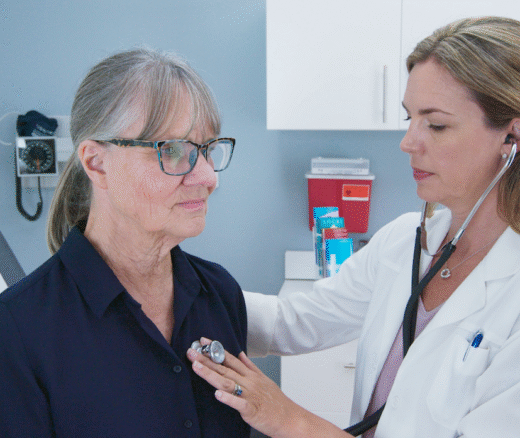
ER Violence Rises – Nurses and Doctors Say These Changes Could Prevent Assaults
LDI Fellows Call for Real-Time De-Escalation Teams and Safer Staffing Ratios to Prevent Chaos Before it Erupts
News | Video
The National Institutes of Health (NIH) has established a new implementation science hub at the University of Pennsylvania to provide centralized support for a network of 10 new Maternal Health Research Centers of Excellence across the country. The centers are part of NIH’s Implementing a Maternal Health and Pregnancy Outcomes Vision for Everyone (IMPROVE) initiative.
Called AMETHIST@Penn (Achieving Maternal Equity and Transforming Health through Implementation Science and Training), the new Penn implementation science hub sits at the center of a nationwide research program funded overall at $168 million for seven years. The grant awarded to the Penn hub is $19 million. A separate data innovation and coordinating hub at Johns Hopkins University is also part of the initiative.

The overall goal of the NIH’s IMPROVE network and hubs program is to address the biological, behavioral, environmental, sociocultural, and structural factors that affect pregnancy-related complications and deaths in the United States. The tactical mission of AMETHIST@Penn will be assisting the centers’ investigators in more effectively integrating their innovations into daily clinical operations.
AMETHIST@Penn is Co-Directed by LDI Senior Fellows Meghan Lane-Fall, MD, MSHP, and Rebecca Hamm, MD, MSCE, both of the Perelman School of Medicine. It begins with 50 researchers and staffers–fifteen of whom are LDI Senior Fellows. It has also established partnerships or affiliations with 15 other Penn science organizations.

Lane-Fall is the Executive Director of the Penn Implementation Science Center (PISCE) and an Associate Professor of both Anesthesiology and Critical Care, and Biostatistics, Epidemiology, and Informatics. Hamm is an Assistant Professor in the Division of Maternal Fetal Medicine.
Implementation science is the scientific study of methods and strategies that facilitate the uptake of evidence-based practice (EBP) by practitioners and policymakers. It is a process of developing and testing strategies to overcome barriers to EBP adoption and implementation. Penn’s health service research community has been a national leader in the development of this emerging field.
“One of the things that really excites me about AMETHIST@Penn is how it represents a model for building up networks of research centers with these core support hubs of concentrated expertise in cutting edge content areas like maternal health and implementation science,” said Lane-Fall. “I can tell you from experience that the demand for this kind of expertise already outstrips the supply of what’s generally available, so this new approach is very promising in its potential to accelerate research efforts to improve health care.”
“The overall vision of the Maternal Research Centers of Excellence is very broad,” said Lane-Fall. “The centers are widely distributed so they represent urban settings, rural settings, and a broad swath of racial, ethnic, and socioeconomic diversity. That includes a lot of regions that have what we call ‘maternity care deserts’ that are now a part of this initiative.”
The Maternal Health Research Centers of Excellence and hubs program is the latest expansion of the NIH’s IMPROVE Initiative launched in 2019 as the country was coming to terms with the shocking dimensions of the maternal mortality problem. It was designed to develop and evaluate innovative approaches to reduce pregnancy-related complications and deaths and promote maternal health equity.
“The magnitude and persistence of maternal health disparities in the United States underscore the need for research to identify evidence-based solutions to promote health equity and improve outcomes nationwide,” said Diana W. Bianchi, MD, Director of NIH’s Eunice Kennedy Shriver National Institute of Child Health and Human Development (NICHD) as she announced the latest programs. “Through collaborations with community partners and others, the Maternal Health Research Centers of Excellence will generate critical scientific evidence to help guide clinical care and reduce health disparities during and after pregnancy.”
Lane-Fall emphasized that equity issues were a crucial component of every aspect of AMETHIST@Penn’s work. It’s Equity Core includes a 17-member Equity Advisory and Oversight Board of people with expertise in community partnership and engagement in reproductive justice.
“We have experts in implementation science, equity, and community engagement, statistics, and qualitative methods, and everything that people need to know to execute rigorous implementation science work,” said Lane-Fall.
~ ~ ~
Along with Lane-Fall and Hamm, the other LDI Senior Fellows involved in AMETHIST’s work are: Jaya Aysola, MD, MPH; Amanda Bettencourt, PhD; Rebecca Clark, PhD, RN; Danielle Cullen, MD, MPH; Kristin Linn, PhD; Sindhu Srinivas, MD, MSCE; Jessica Fishman, PhD; Karen Glanz, PhD, MPH; Katelin Hoskins, PhD, MBE; Elizabeth Howell, MD, MPP; Sarita Sonalkar, MD, MPH; Courtney Schreiber, MD, MPH; and Alisa Stephens-Shields, PhD.


LDI Fellows Call for Real-Time De-Escalation Teams and Safer Staffing Ratios to Prevent Chaos Before it Erupts

Penn LDI Senior Fellow Yong Chen Is an MPI in the 10-Institution NIA Undertaking

Despite Streamlined Processes, FDA’s Role in Rare-Disease Drug Development Draws Continued Scrutiny

LDI Fellows Used Medicaid Data to Identify Individuals at Highest Risk for Cocaine- and Methamphetamine-Related Overdoses, Paving the Way for Targeted Prevention

More Focused and Comprehensive Large Language Model Chatbots Envisioned

Medicare Advantage Modestly Cut Black–White Disparities in Chronic Disease Prevention Compared to Traditional Medicare, but Care Gaps Remain for Latinx Populations